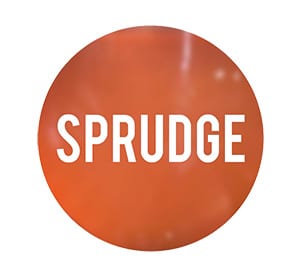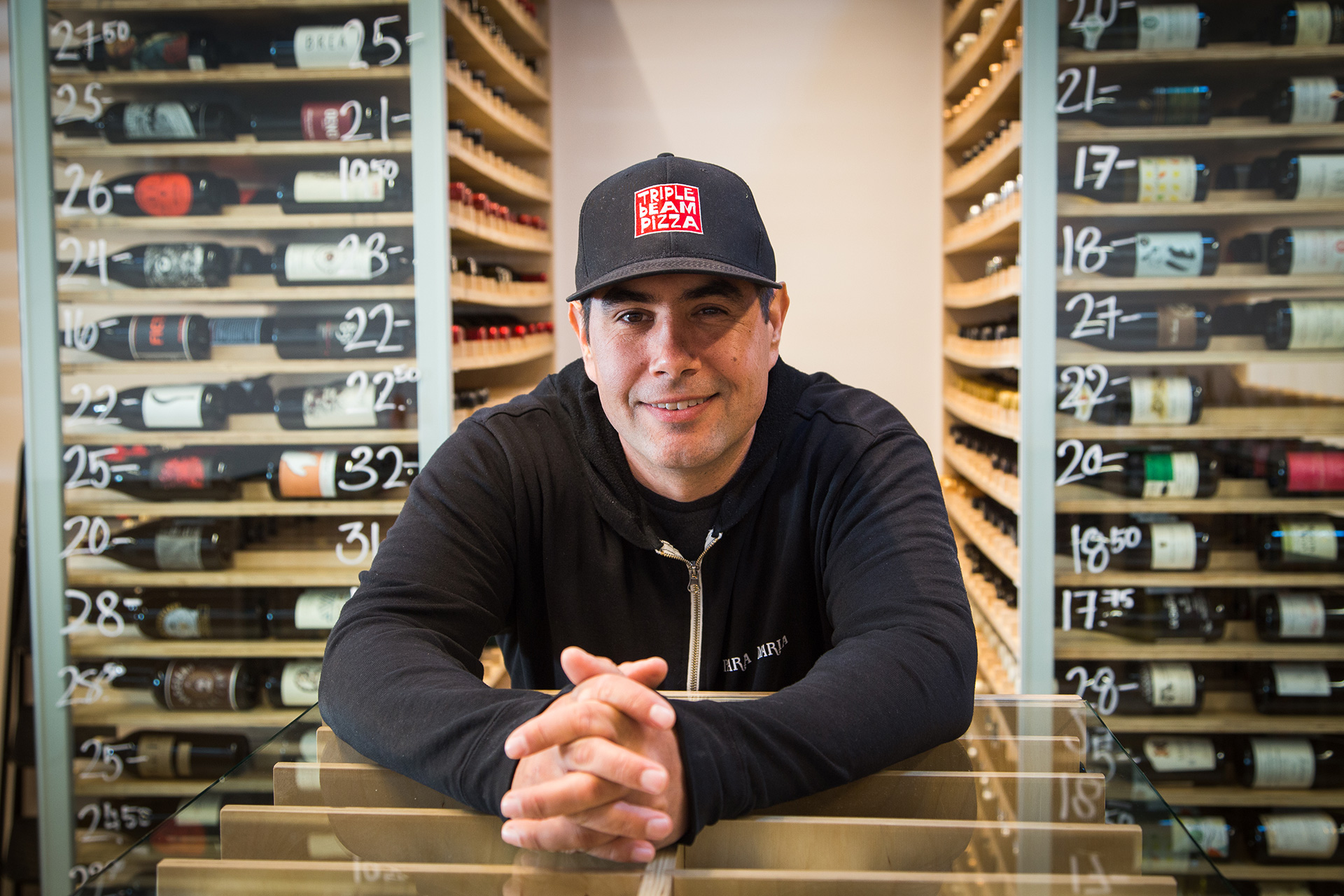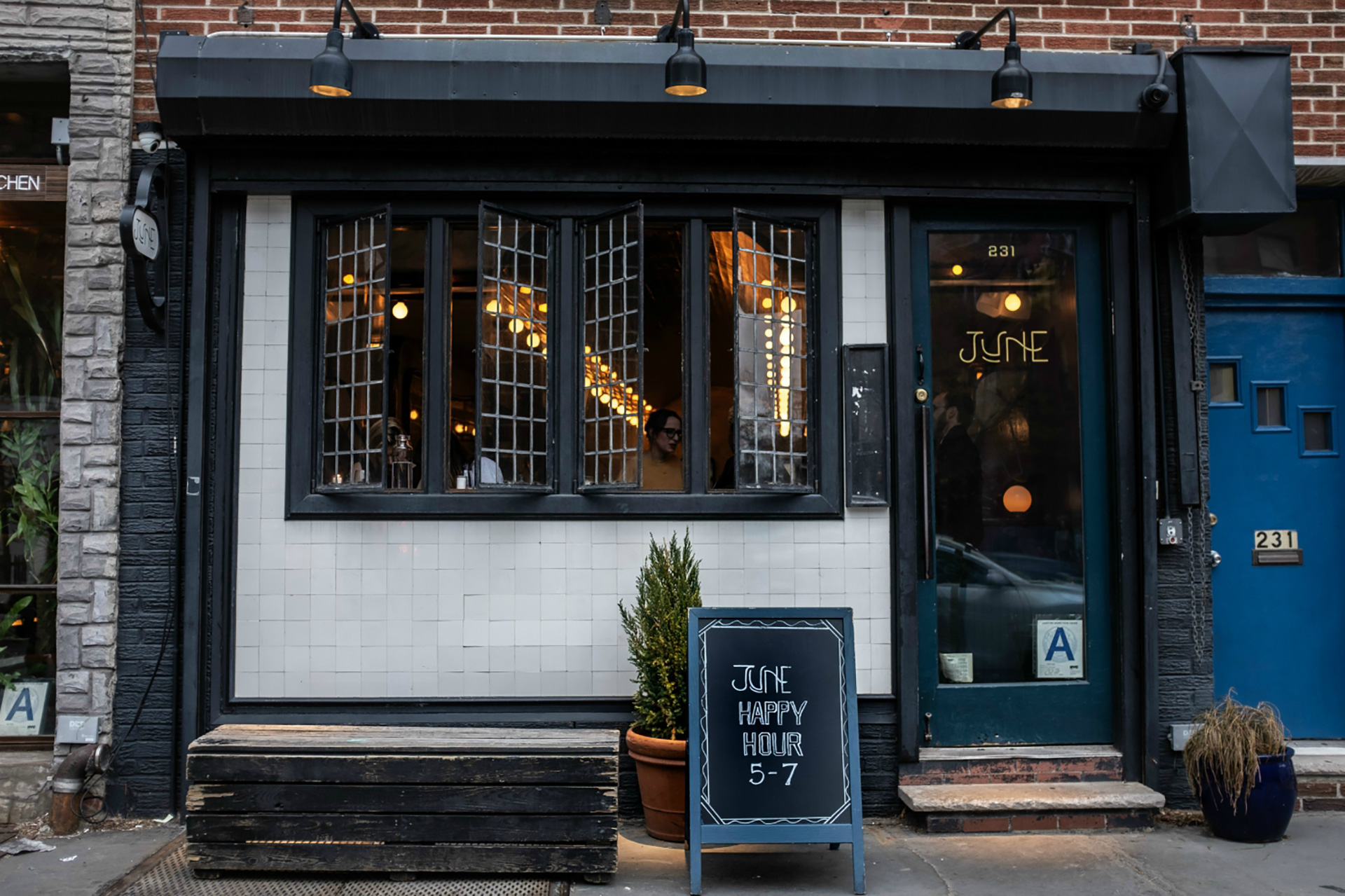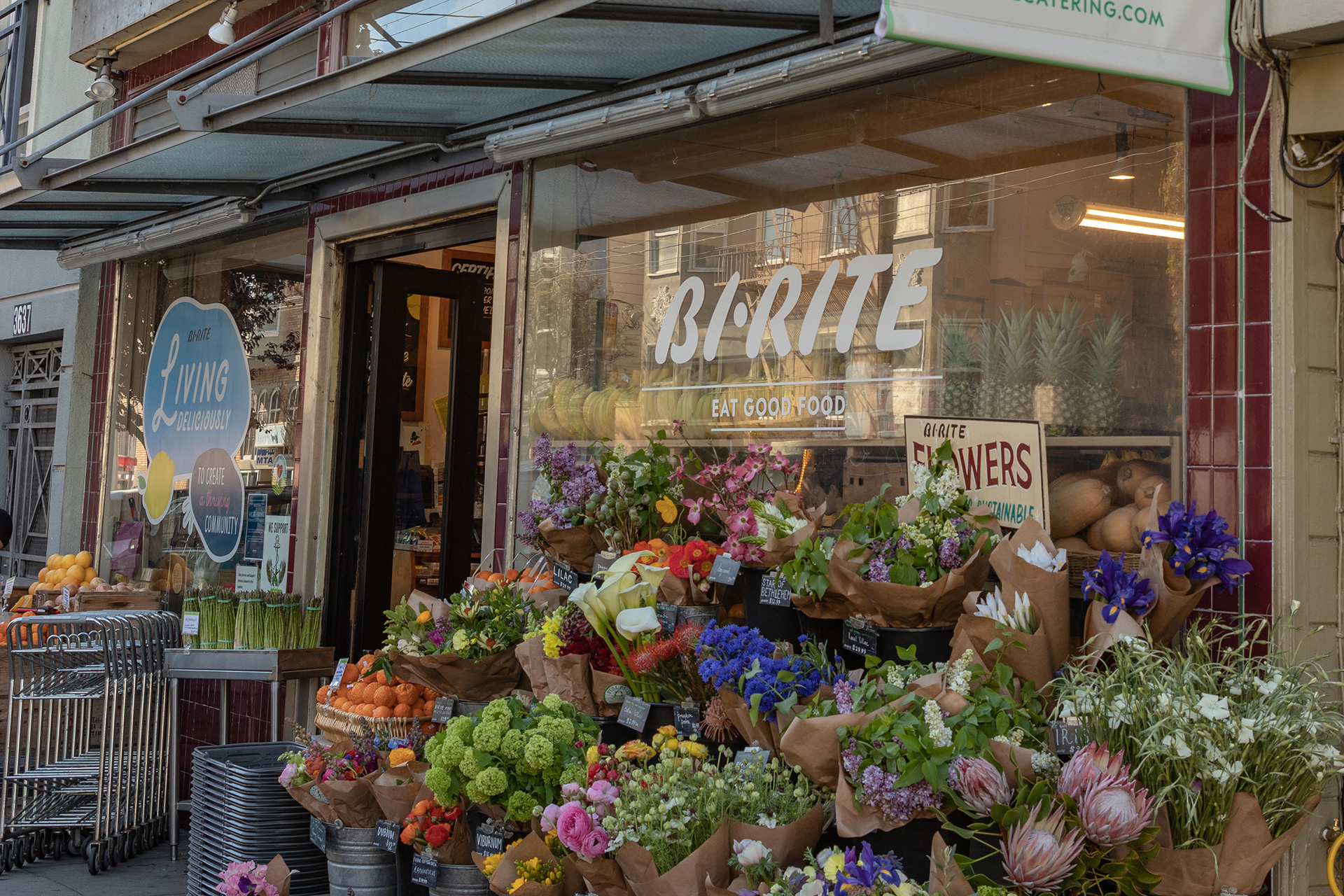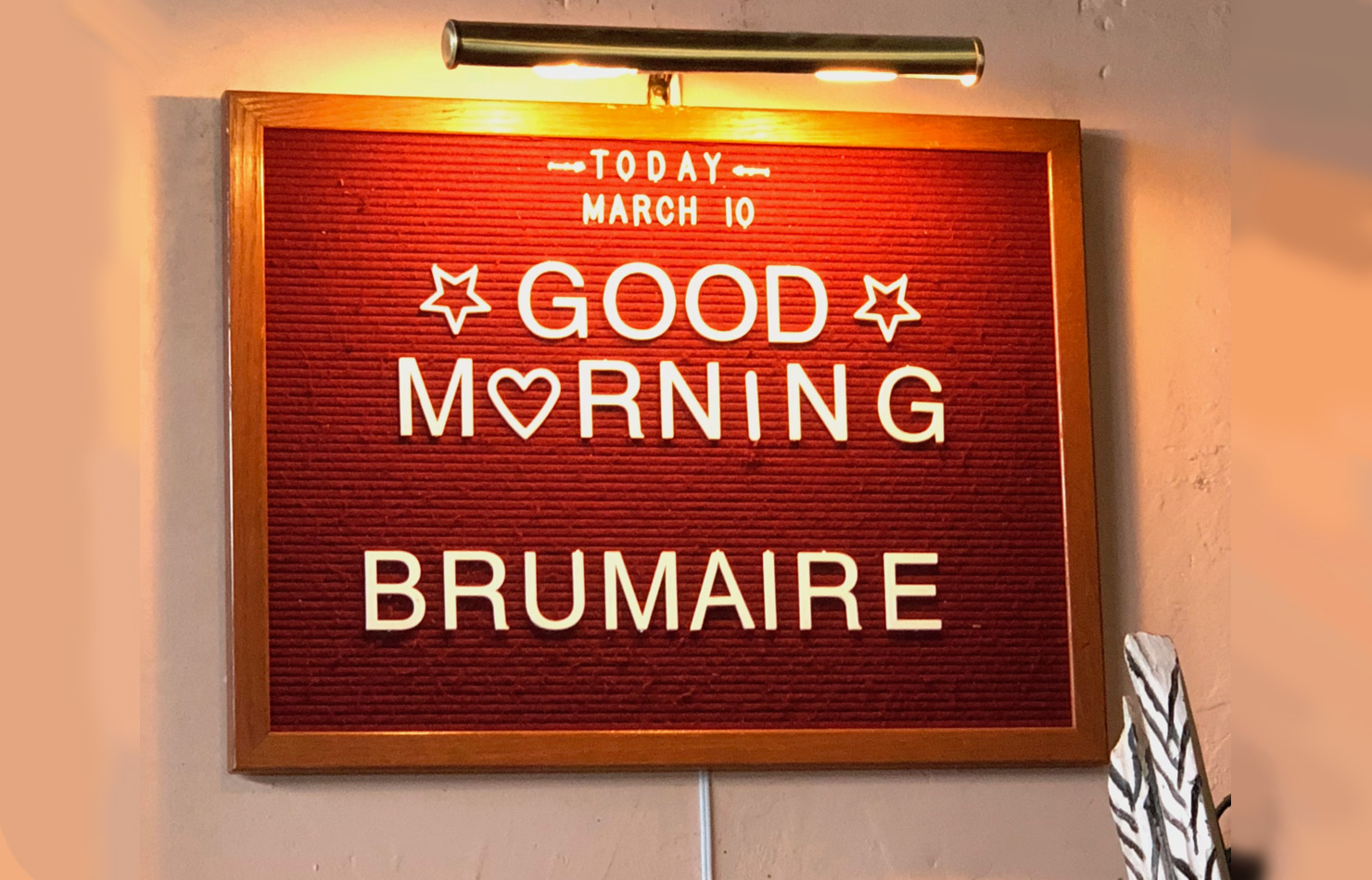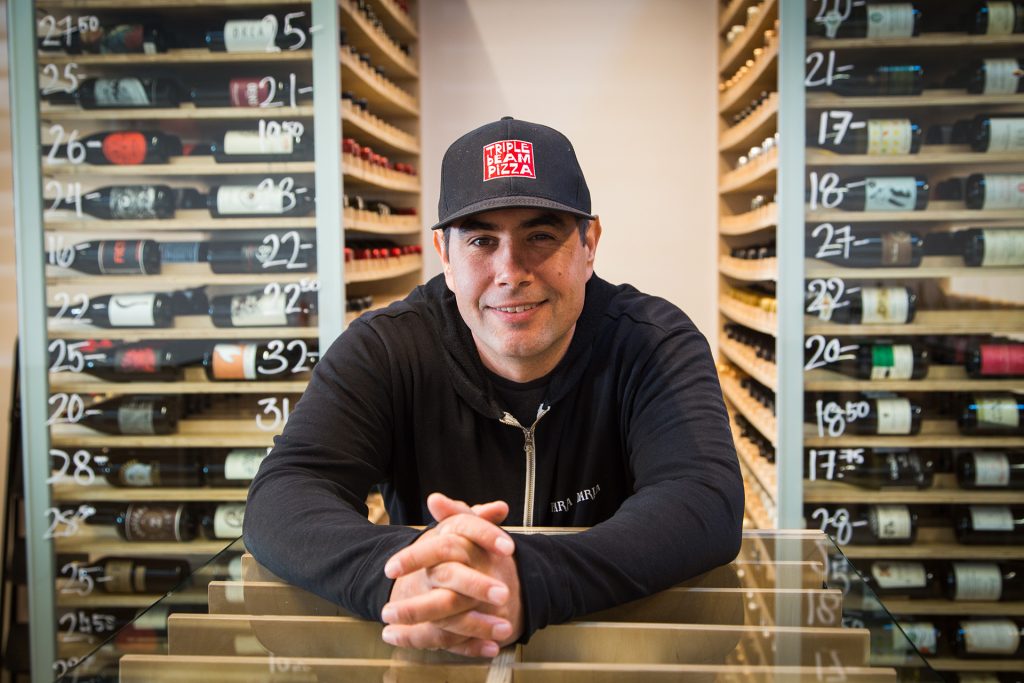
It’s just shy of noon—pizza time for many, game time for Randy Clement. Like he says, “Fuckin’, the dream is free; the hustle is sold separately.” He darts between the front and back of house at Triple Beam Pizza, hollering the occasional “hey, man!” through the accordion gate to queueing friends and customers. This is the first restaurant in Clement’s new culinary minicampus on Highland Park’s Figueroa Street, which, for several years now, has been one of Los Angeles’ fastest gentrifying areas. Helmed by Clement and his multi-James-Beard-award-winning friends, Matt Molina and Nancy Silverton, there’s already a Highland Park Wine, while a new restaurant from Molina and a branch of Go Get ‘Em Tiger are slated to open later this year.
But right now, it’s all about Triple Beam, which is already churning the comforting aromas of bread god Silverton’s crust throughout the complex. With the demeanor of a favorite high school sports coach who high-fives everyone in the hallways, Clement clearly loves playing captain of the front of house. “I’ll literally be here all day long, just talking to every single person,” he says. Everyone in line gets a menu and an explanatory riff from Clement: “So, Roman-style pizza. What that means is that it comes out in these big pies. Say how much you want. They weigh it by the ounce.”
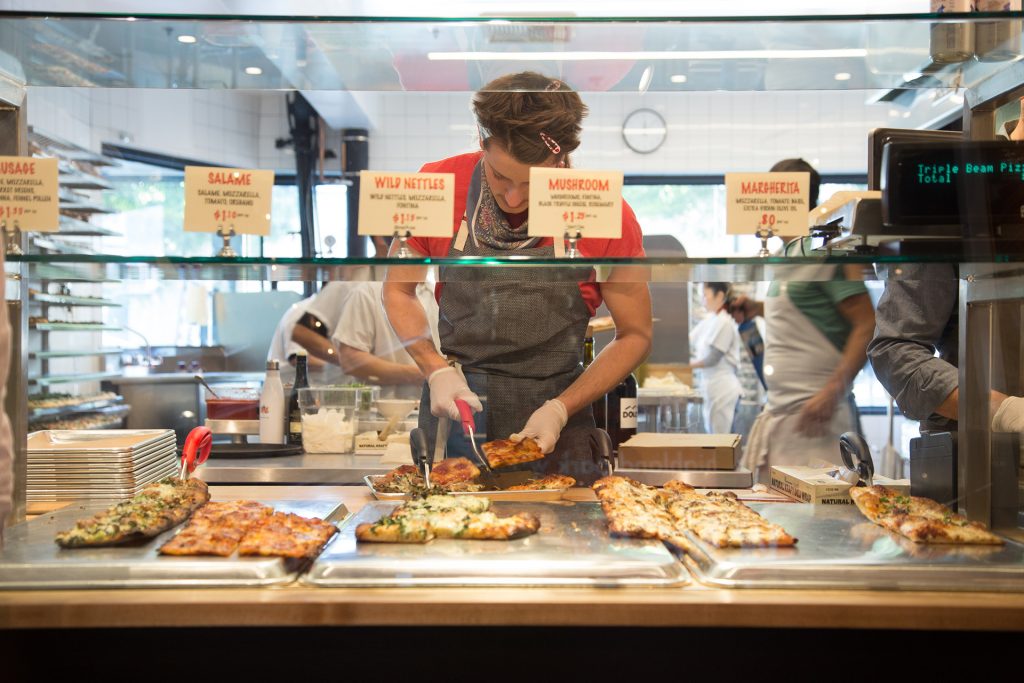
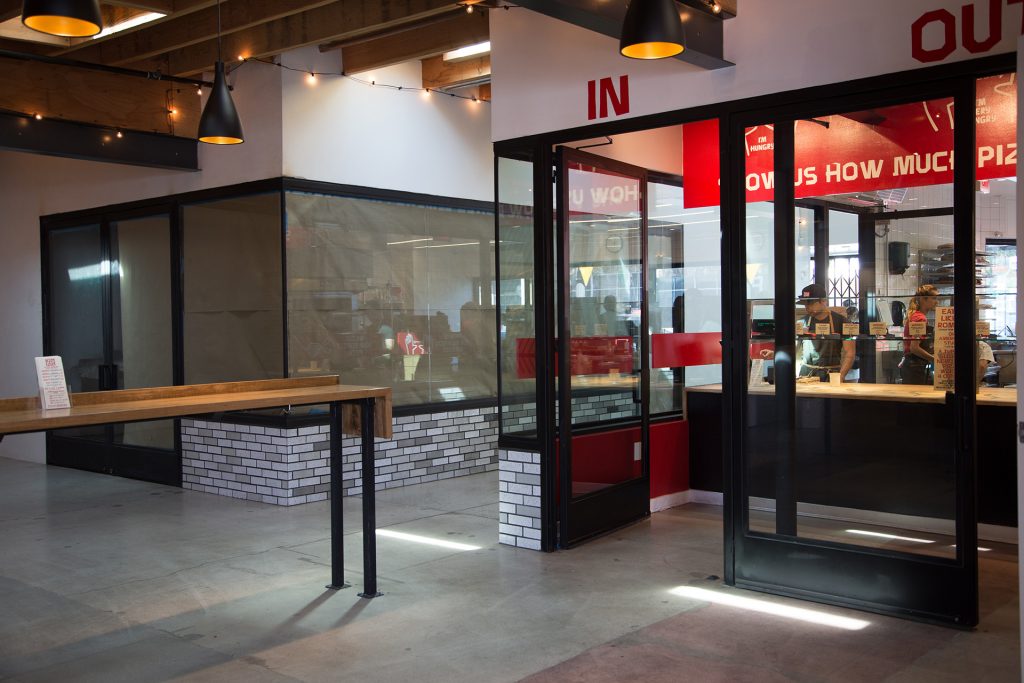
Clement and Molina have been working together on this concept since Molina left his seat at chi SPACCA and Osteria Mozza, part of Silverton’s Italianplex institution, to open the Arts District’s Everson Royce Bar with Clement in 2015. Silverton got word of her chef’s new moves, and wanted in on the pizza concept just beginning to take shape—“let’s do it Roman style,” she suggested, wherein crispy-bottomed, chewy-topped pies are cut with scissors and purchased by the ounce.
It’s a collaboration with almost two decades of history behind it. Molina and Clement met during their tenures at Silverton’s seminal Campinile in the late 1990s, when they were hired just days apart and just shy of Clement’s 21st birthday. Clement’s next move after Campanile was to open Silver Lake Wine with his partner, April Langford, in 2001, to which Los Angeles owes much of its approachable wine culture. Silver Lake Wine was an antidote to what Clement calls the stodgy “legacy wine shops” of yore, and with packed weekly tastings that feel like house parties jamed with neighbors, they helped place natural, organic, and biodynamic wine into the local consciousness.
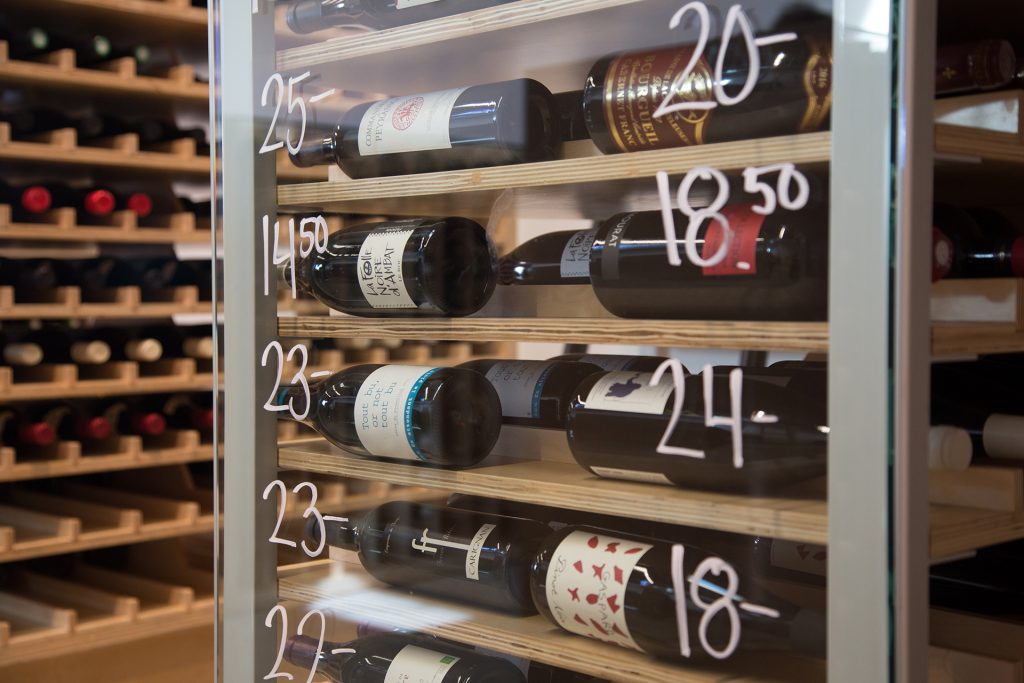
“When we opened,” Clement explains, “there were no small wine shops. That concept didn’t exist.” Though his selections pushed the palates of adventurous Angelinos, it was what the community already craved. “We let the neighborhood define what they want,” says Clement. “When we opened Silver Lake Wine, I said, ‘We should just fuckin’ call this store ‘You Should.’ Everyone was like, ‘You should do this; you should do this.’ The people speak, and we order what they like. We’re not out here with a fuckin’ viticultural agenda, you know what I mean?”
Clement recognizes that natural wine is having a cultural moment, but is wary of the flitting of trends. “I figure, nice is trend-proof,” he says. “That’s the idea. We know, God willing, that we live on this earth long enough to see things change and come and go. People wore suspenders in the ’80s, and fuckin’…what are those things, with the plaid shit? What was it called? What Nirvana wore?” I offer, do you mean flannels? “Yeah, flannels in the 90s.” He pauses to wave at a customer. “I know the trends will change, but nice is trend roof, you know what I mean? We want all of this to be culturally relevant, but I think just being flat out nice, and helpful and,” with breathless emphasis, “thankful!” He sighs. “Everything else should work itself out.”
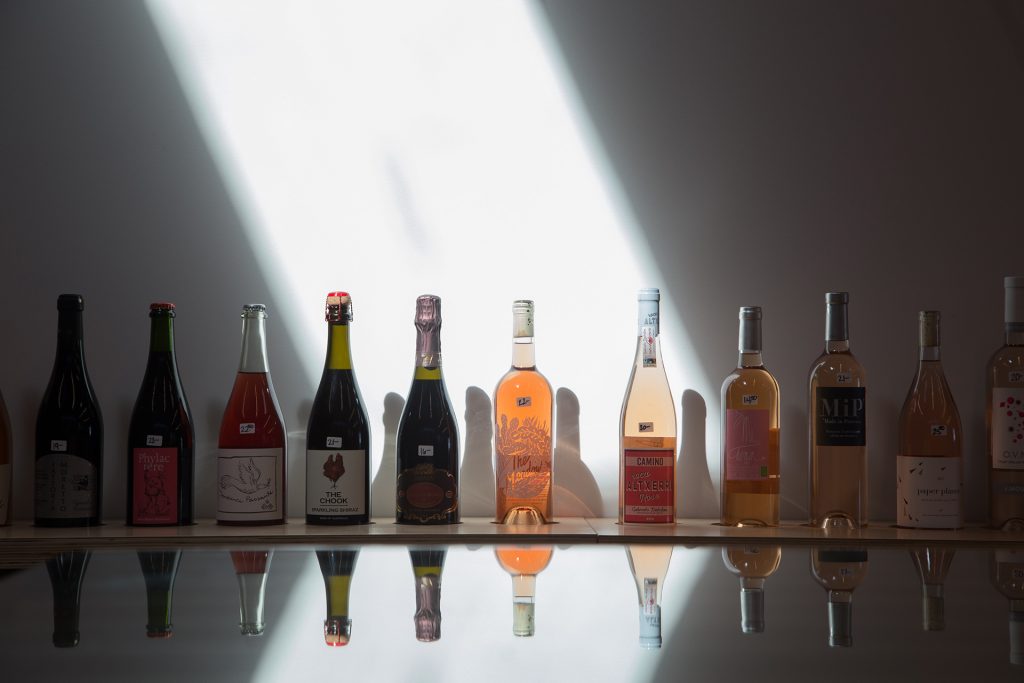
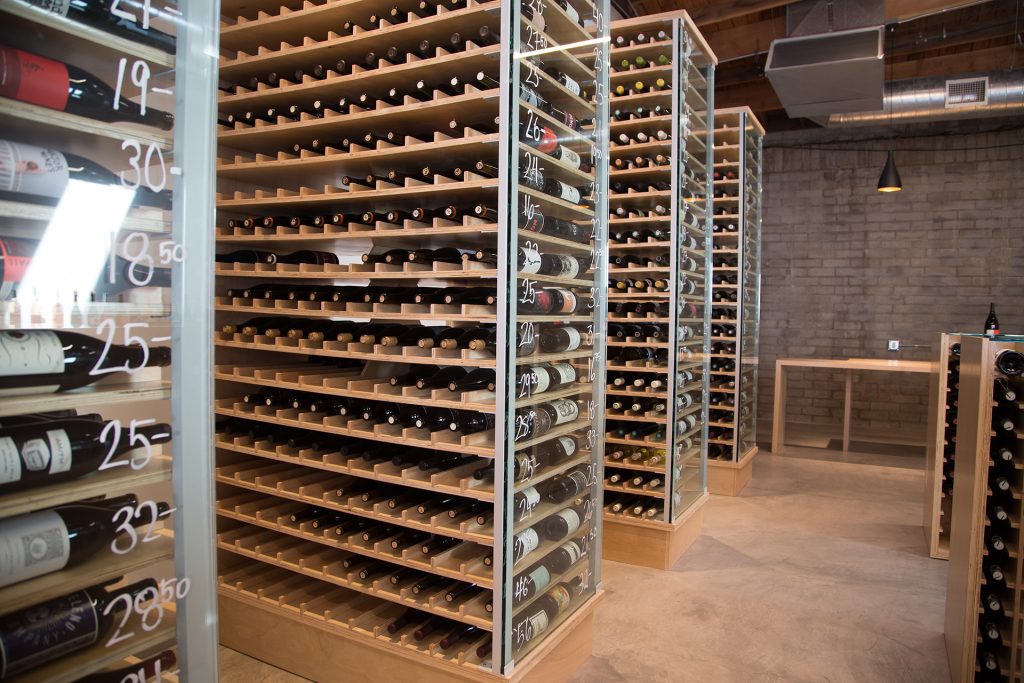
Surveying his empire—a network of outposts covering Silver Lake, Pasadena, the Arts District, and now Highland Park—it’s clear that a lot of his success here did, indeed, work itself out. But it’s still the nascent days of his most complex project, so Clement is constantly QCing the attitude and delivery of all of his staff to ensure the live up to this rep. “The hardest thing to disrupt people out of is fine,” he remarks. “To get people to change from fine, that’s where you gotta layer on all the niceness.”
A focus on friendly customer service didn’t just do Clement’s business good, but in part helped spin the web of a new wine culture radiating out of Los Angeles, the kind that rewards curiosity and a craving for a good time over expertise and pretension. To that end, there are some tweaks he wants to make, to refine the experiential concept of Triple Beam, because he doesn’t “want people to have to be able to speak English to understand this.”
“Now, my role is to make sure that…”—Clement pauses to thank someone coming in—“the world at large understands how this works, and that we do it in a digestible way that isn’t confusing, and that we develop a narrative that’s clean enough.” His attention snaps back to a couple newcomers, handing them menus and shepherding proper line formation.
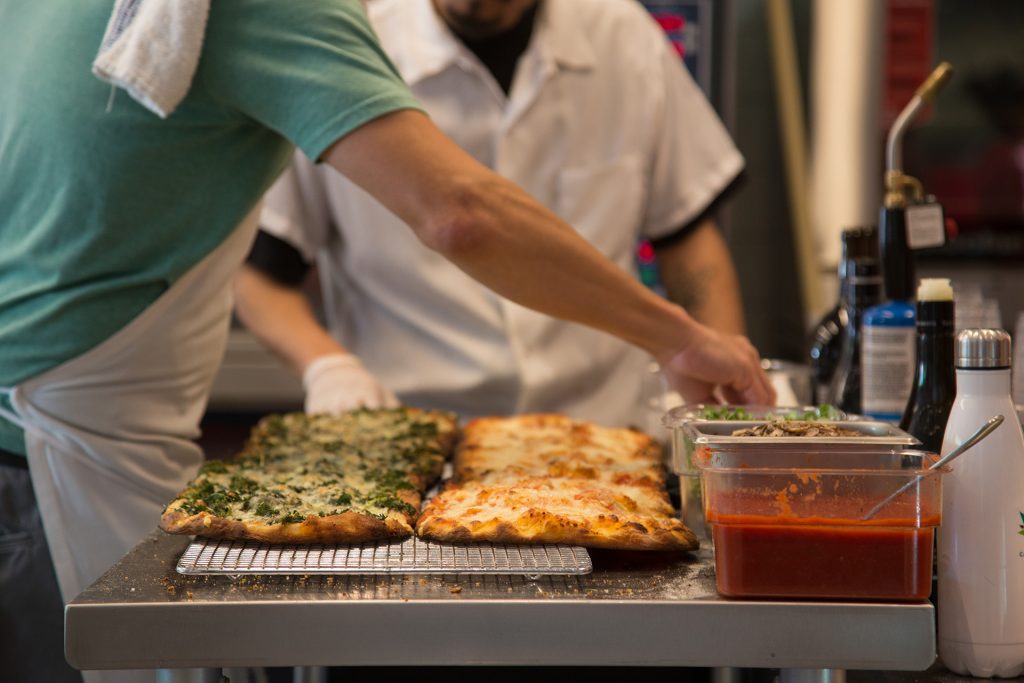
“The way I look at this,” Clement drifts into rumination and leans in close, “is that it’s like eating mushrooms for the first time. You don’t wanna do like a bunch of mushrooms or acid by yourself. You’re always gonna do it with someone that’s done it before. You eat it together. Then they walk up to you two minutes later, like, ‘How do you feel?’ and you’re like ‘Ah, everything’s getting a little traily. I’m kinda feeling super happy and laughing.’ And I’m like, ‘Cool, that’s exactly what it’s supposed to be.’ You know what I mean?” I sort of did. “So I’m here to make sure that first trip goes good.”
If Clement is the spirit guide of the hectic, buoyant bustle of their buzzing new pizza joint, then his partner April Langford is the sage in the back. She “speaks the least and thinks the most, unswayed by massive amounts of optimism or emotion,” says Clement, while manning the juice in the quiet refuge of Highland Park Wine. “April’s like the boss of all things. She’s the head of Voltron,” Clement explains in reverence. “You go through April—she’s like the oracle in the Matrix. There’s a sign in the bar in the back storage area that says, ‘Be like April.’ The people that work here put it up, not us! I look at it, and, I’m like, ‘Yeah, me too! I wanna be like April.’”
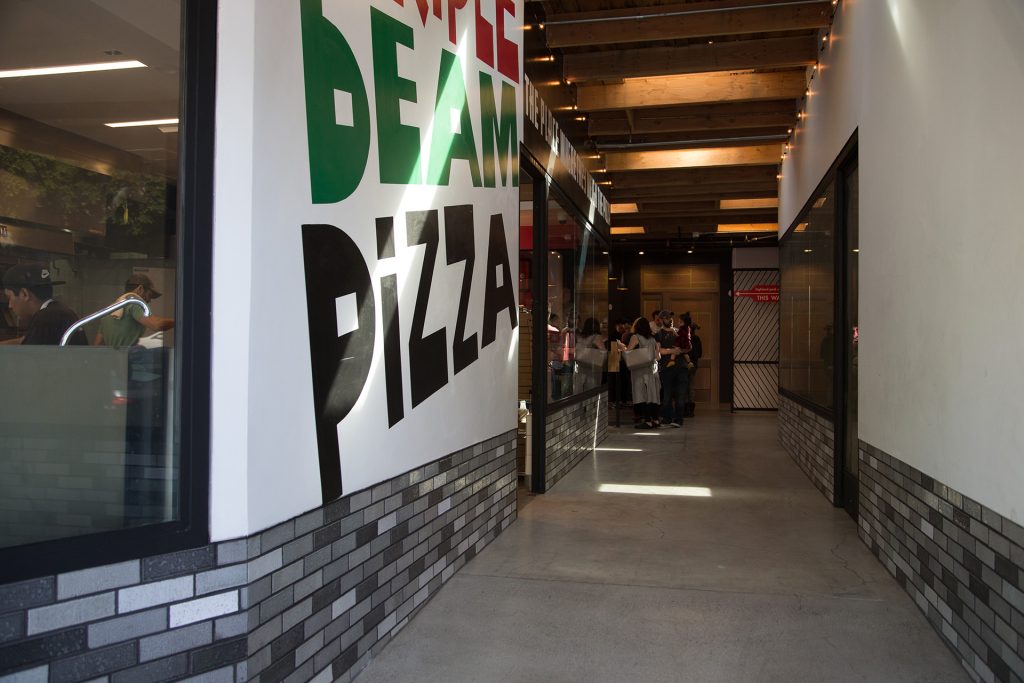
As much as Clement clearly loves to be a host to a never-ending block party, he’s also very much the boss. He’s a people person who, at times, thinks like a developer. He talks about eyeing Figueroa since 2005, of thinking of it as “the true corridor for the east side of Los Angeles for a variety of reasons,” including abundant freeway exists, Metro stops, and a rare old-LA walkability. He talks about speaking to students at the USC School of Business and gleaning that what the younger consumers want are experiences, rather than things, and how that elevates Triple Beam into the aforementioned disruption of fine that Clement craves to create in people’s lives.
As I’m eating my pizza, a middle aged woman walks in and asks me, “What is this?” Qué bonitio!” She’s lived in Highland Park for 32 years, and remarked on how different it looks to her. What some think of as “disrupting fine” as a boon, others may see it differently. But in the mind of Clement, “We built an emotional platform for people to stand on, and it happens to be pizza.” “The wines happen to be great tasting alcohol delivery devices. The bar downtown is a neverending party. But it’s all built on this same emotional platform.”
He pauses for a bit, and begins to meander again, drawing a comparison to listening to recorded Stephen Hawking talks with his kids, because, he says, “I’m not capable of describing the idea of what ‘big’ really is.”
What he means in terms of pizza and wine is this: “If the people are into something, the people make it big; not me, not us. We just build a platform.”
